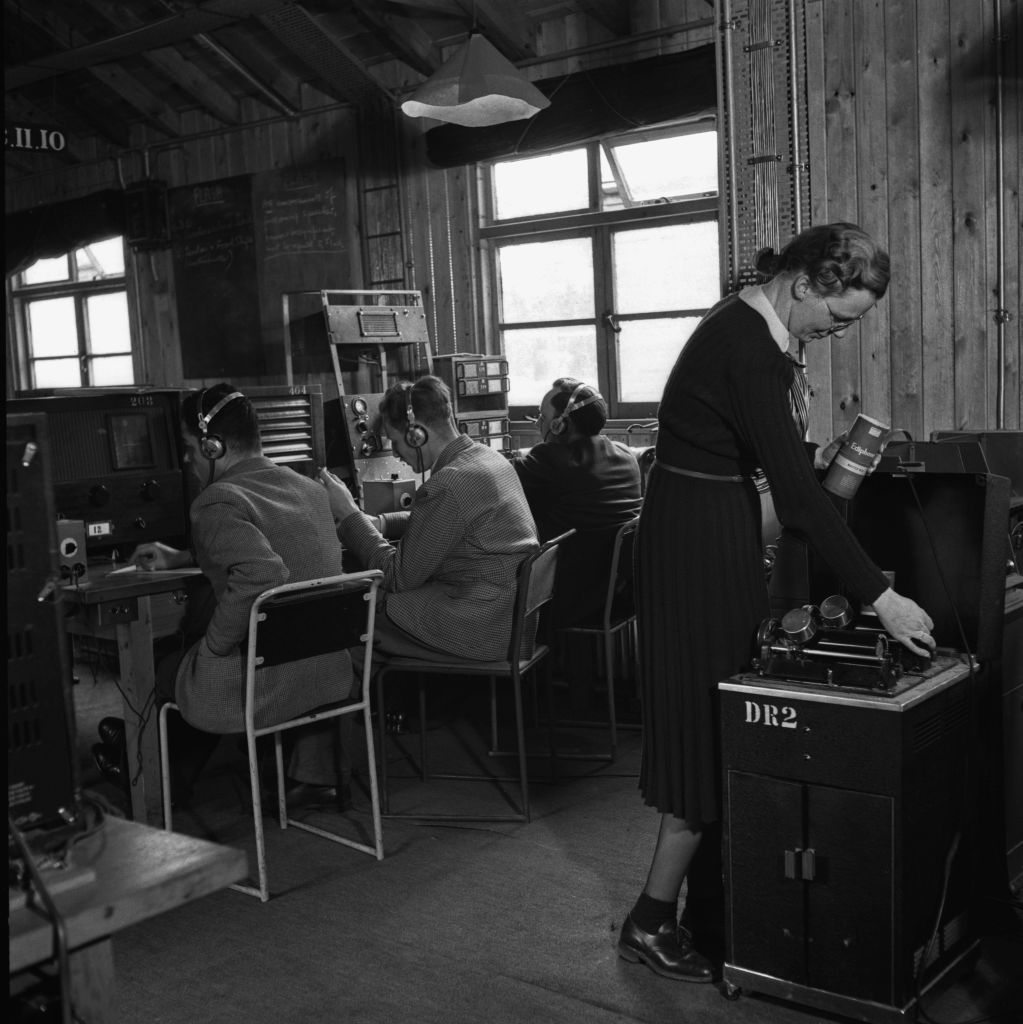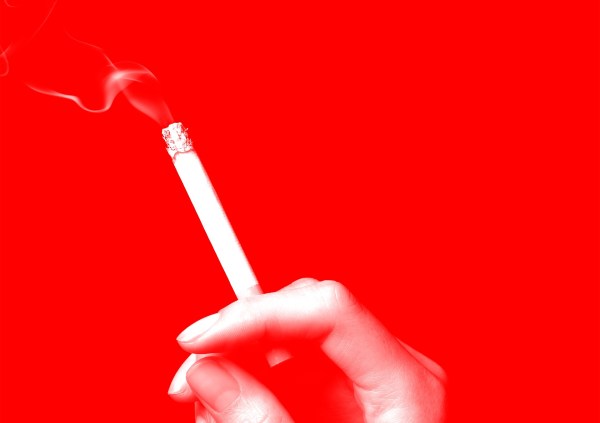Decades before her rise to literary fame, the British novelist Penelope Fitzgerald spent six years working at the BBC—from 1939 to 1945. Those experiences formed the basis of her 1980 novel Human Voices, a depiction of an unwieldy, at times farcical cast of characters who find themselves on World War II’s information frontlines.
Navigating around “damp sandbags” to enter the broadcasting house each day, the air “alive with urgency and worry,” the journalists in Human Voices wrestle with questions about truthful reporting, journalistic neutrality, and the media’s responsibility in informing and even shaping public opinion. As technology radically changes our media landscape and Americans show a deepening lack of trust in journalism, the stakes of these questions remain high today.
Fitzgerald confronts them by capturing the tragedy and comedy of an ordinary office during an extraordinary time. In her austere prose, the doldrums of daily life collide with the grandeur of wartime reporting. The BBC journalists—branded with acronymed job titles like RPD (Recorded Programmes Director) and DPP (Director of Programme Planning)—resemble, in Fitzgerald’s words, “a cross between a civil service, a powerful moral force, and an amateur theatrical company.” Foibles and fixations notwithstanding, they also show an earnest sense of duty to a war-stricken people. They end up imperfectly united in what Fitzgerald describes as “the strongest project of the war, or of any war, that is, telling the truth.”
These journalists sometimes disagree on exactly how this should be done. Sam Brooks, one of the novel’s protagonists, views himself as a reliable curator of reality, fixating intently on capturing the clarity of the human voice in his recordings to catch “the sound of history as it passes.” He’s troubled when his bosses suggest they’d be better off with fewer pre-recordings and more live broadcasts—partly because it would decrease his influence, but also out of a belief in the authenticity of recorded sound. As with many aspects of Fitzgerald’s novel, seemingly petty departmental politics collide with principles about what journalism should be like.
In a pivotal scene set in June 1940, Fitzgerald explores that cousin of human fallibility—subjectivity—and what it means for journalists to strive for neutrality. After escaping the continent, a fictional French general named Georges Pinard goes on air. His “quiet, moving, old man’s voice, with a slight metallic edge,” speaks into the microphone:
When the Germans arrive, and at best it will be in a few weeks, don’t think of resistance, don’t think of history … Think of yourselves, your homes and gardens … the children who will live to see this pass and who will know that all governments are bad, and Hitler’s perhaps not worse than any other … When you hear the tanks rolling up the streets of your quarter, be ready to give in.
The panicked whispers in the recording room—“I don’t know who authorized him to speak”—give way to Pinard’s almost comical collapse into a coughing fit. As his speech abruptly ends, a duty officer rings the recording room: “There had been many complaints. For the past ten minutes there had been total silence on the Home network. The fifteen million listeners had heard nothing.”
Jeff Haggard, DPP, who had decided to cut Pinard off, figured that the general’s panic “wouldn’t, on the whole, be helpful to the nation at this particular juncture.” Afterward he adds, “I thought I’d better be on the safe side.” Was he right?
The episode calls to mind the intense debates about the role of journalism in recent years. In 2016, some suggested that Donald Trump’s unique dangers justified throwing out commitments to objectivity and covering him “as an abnormal and potentially dangerous candidate.” Others argued that one could call out “his many character flaws, and his dubious policy pronouncements” without “adopting an oppositional stance.”
Haggard’s editorial decision to “pull the plugs” on Pinard seems based on his belief in a key moral truth—that surrender to the Nazis was unthinkable. With the benefit of hindsight, we’re probably inclined to agree with him. But does this mean that we’re happy to be concealed from an alternate view?
The dilemma is especially germane following Tucker Carlson’s interview with Vladimir Putin last month. Announcing the interview, Carlson said that “it’s our job, we’re in journalism, our duty is to inform people.” He complained that while Ukrainian President Volodymyr Zelensky had been interviewed countless times, no Western journalist had given Putin the time since the onset of the war. “That is not journalism,” he added. “It is government propaganda of the ugliest kind, the kind that kills people.”
What Carlson concealed, however, was that no Moscow-based Western journalist—no other Western journalist, period—has been allowed an interview with Putin, because Putin only speaks to state-controlled outlets. When core language and definitions—truth, propaganda—become endlessly distorted and contested by ideological differences, these central concepts fray and falter in the wind. As Yeats wrote, “Things fall apart; the centre cannot hold; / Mere anarchy is loosed upon the world.”
The chilling worry of our own time is that as a consequence of our technology, a degree of anarchy and fragmentation—of thought, of language, of meaning—will disallow all but the most dogged attempts at truth-telling. Those who do their job with “neither fear nor favor,” in the words of former New York Times owner Adolph Ochs, may become a rare set. But they are out there, no doubt among the journalists who’ve never heard back from Putin about an interview, or more harrowingly, those journalists like Evan Gershkovich who have attempted to tell the truth at the cost of their freedom or their lives.
Within this context and amid our often ruptured media institutions, it’s especially refreshing to encounter Fitzgerald’s characters and notice their simple insistence that there is important work to be done. Between the lines of an often charming novel, Human Voices reflects a determination to speak, even within chaos or uncertainty, about what we witness. Fitzgerald writes that her characters—and her younger self—were “scattering human voices into the darkness of Europe, in the certainty that more than half must be lost.” She adds,
And everyone who worked there, bitterly complaining about the short-sightedness of their colleagues [and] the vanity of the news readers … felt a certain pride which they had no way to express, either then or since.
Time will tell whether our generation will be able to feel the same.






Please note that we at The Dispatch hold ourselves, our work, and our commenters to a higher standard than other places on the internet. We welcome comments that foster genuine debate or discussion—including comments critical of us or our work—but responses that include ad hominem attacks on fellow Dispatch members or are intended to stoke fear and anger may be moderated.
With your membership, you only have the ability to comment on The Morning Dispatch articles. Consider upgrading to join the conversation everywhere.